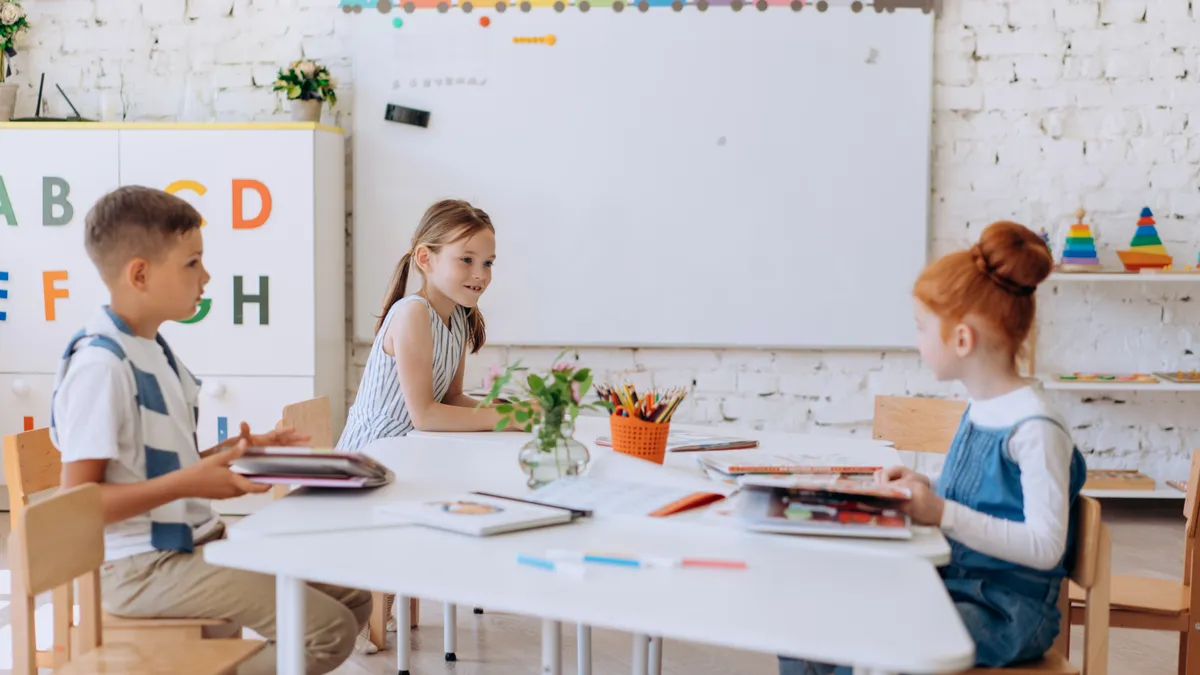Throughout the chaos and uncertainty of the COVID-19 pandemic, educators and students have had their lives uprooted in deeply traumatic, systemic, and individual ways. The mental health needs of students and educators have increased, and the need for social emotional skills, such as self-management and supporting healthy relationships, is more critical than ever. To accomplish the lofty learning goals that educators, administrators, and policymakers have for students, we must invest in students' and educators' mental health and social-emotional skills. Social Emotional Learning (SEL) is one tool that can and should be prioritized as we recreate K–12 education to acknowledge and repair some of the mental health and academic challenges caused by COVID-19.
SEL can be broadly understood as "the process through which children and adults acquire and effectively apply the knowledge, attitudes, and skills necessary to understand and manage emotions, set and achieve positive goals, feel and show empathy for others, establish and maintain positive relationships, and make responsible decisions." With the cornerstones of positive mental health and robust social-emotional skills, we know that children can be exceptionally resilient, continuing to learn and grow despite challenges that might appear insurmountable. Investing in students' mental health and the SEL necessary to gain these skills is critical to supporting both students' individual healing and academic success. Investing in students' learning requires us to acknowledge and invest in educators' mental health. The mental health needs of educators are great. According to a survey conducted by the CDC Foundation and Deloitte in March 2021:
- Over 27% of teachers reported symptoms consistent with clinical depression.
- Alarmingly, 37% reported symptoms consistent with anxiety disorder.
- Over 19% reported starting to use or increasing their use of alcohol to deal with stress and emotions.
Most worrisome is that this same survey found that 53% more teachers were thinking of leaving the profession now compared to before the pandemic. To support and retain educators and encourage student learning, we must prioritize educators' mental health, community support, and professional development.
D2L understands how critical it is to acknowledge the toll COVID-19 has taken on the mental health and wellness of students and educators, and to prioritize programming, technology, curriculum, and resources to support SEL and mental health. Accordingly, we are taking steps as a company to partner with experts and deepen our collective understanding of the impact of COVID-19 on students' and educators' mental health and the importance of SEL on the path to learning recovery.
In our policy brief, "Supporting Social Emotional Learning to Help Enable Student Recovery," we examine the state of mental health amongst K-12 students and educators, and provide recommendations for how administrators and policy makers can bolster resiliency and academic success through SEL. This brief is D2L's first step in our campaign to partner with K-12 educational experts to promote the role of SEL in K-12 education and invest in the mental health and wellbeing of both educators and students.






